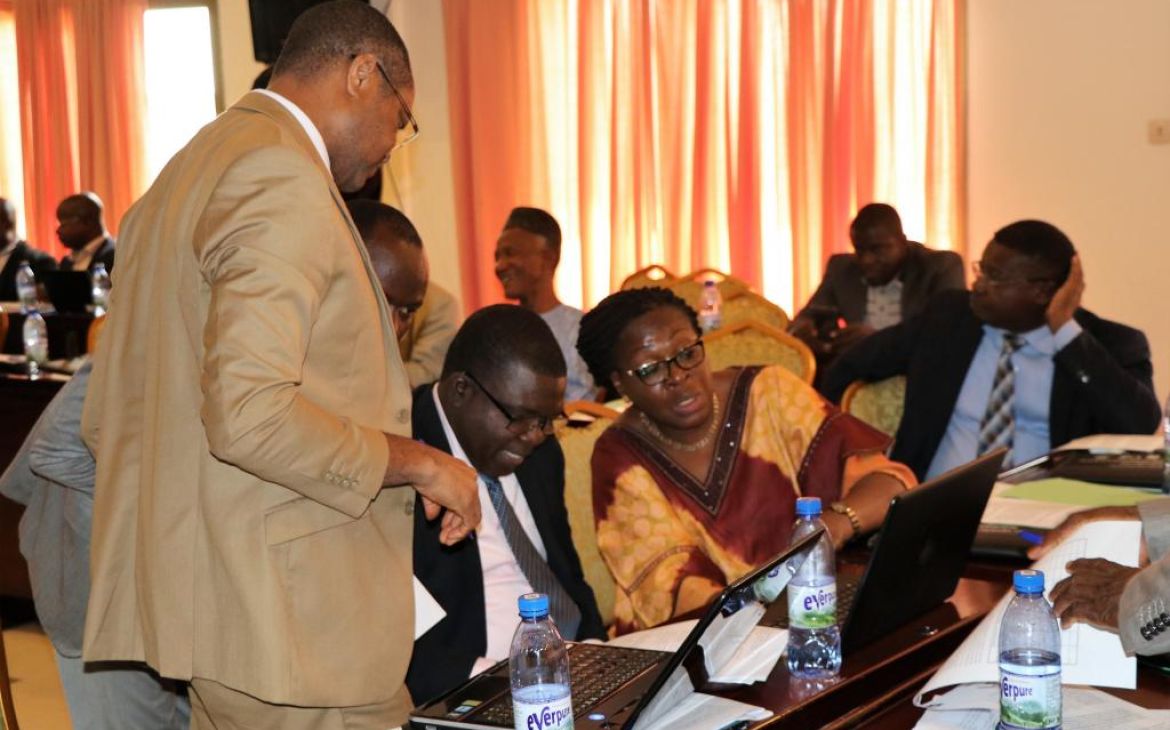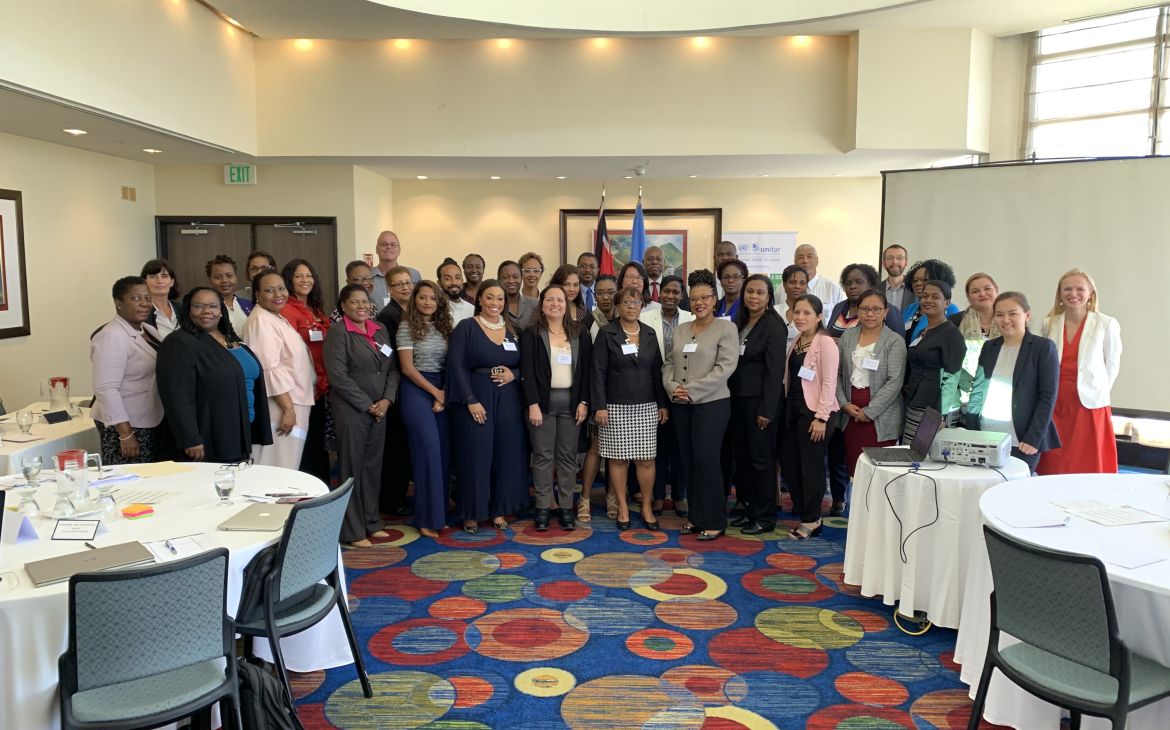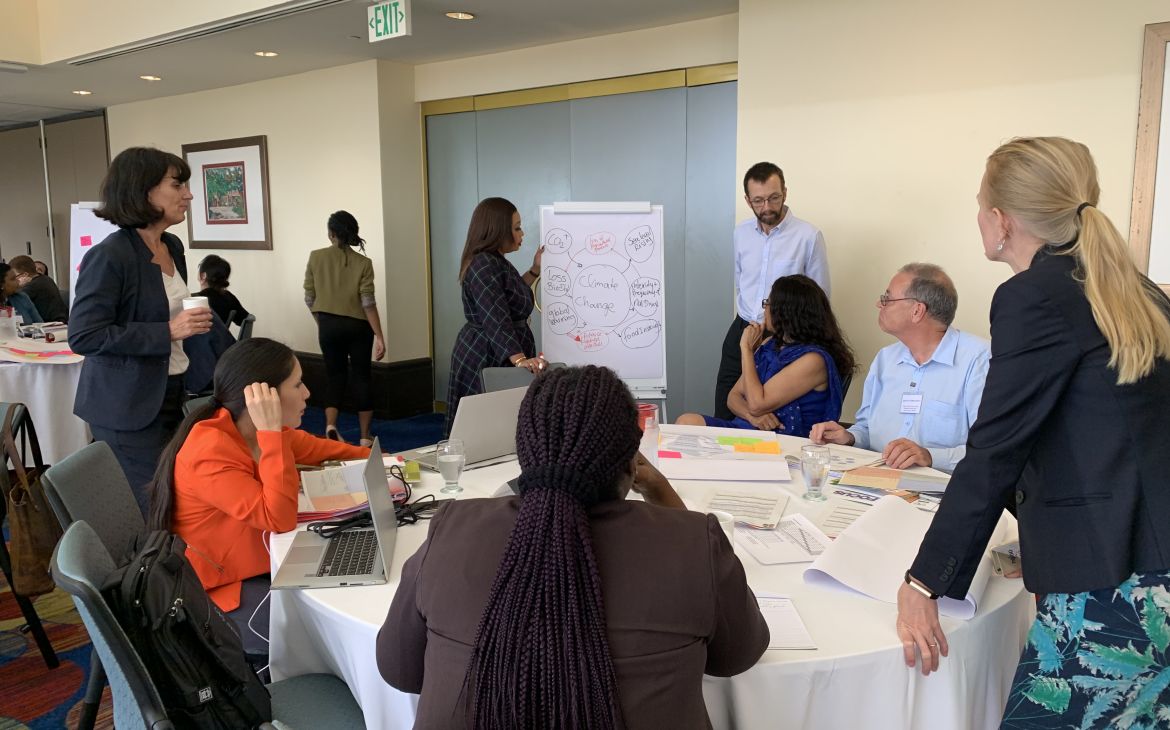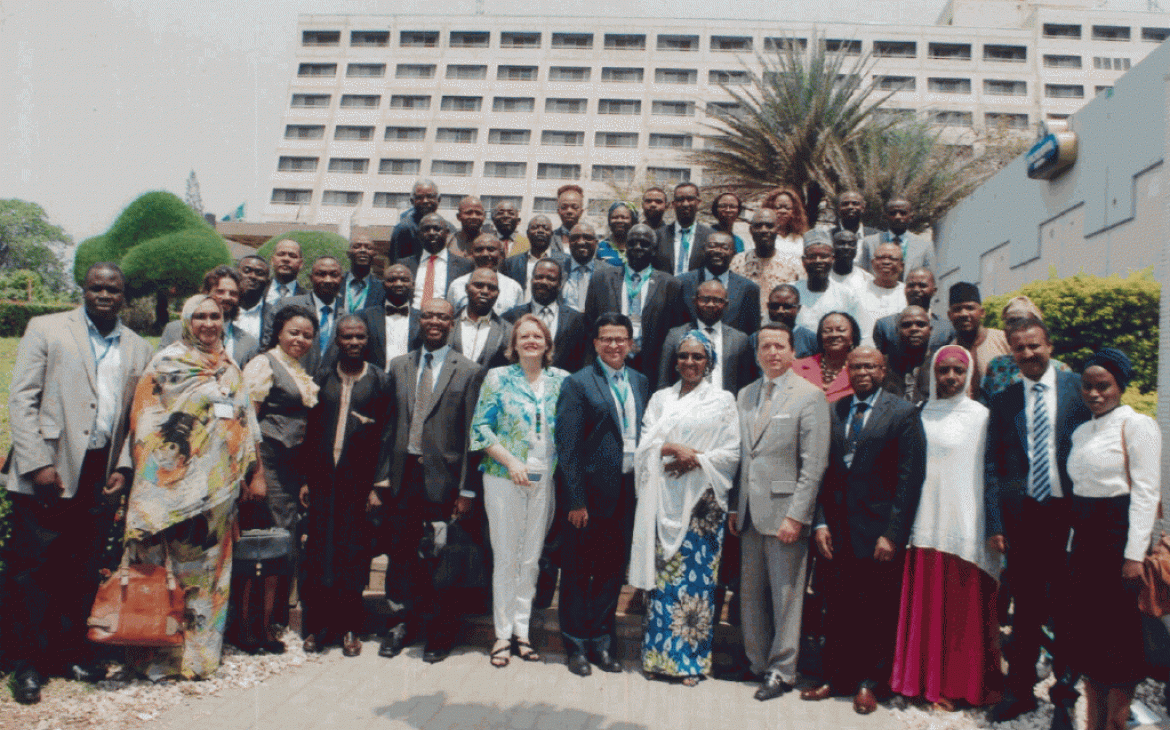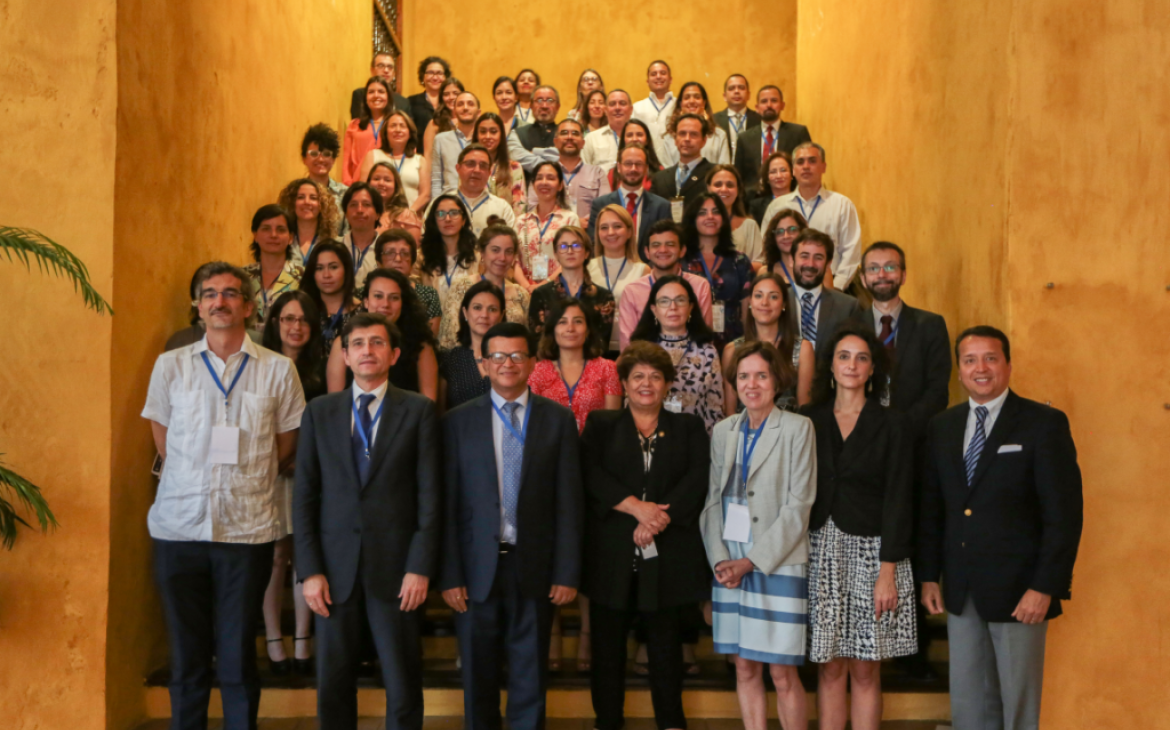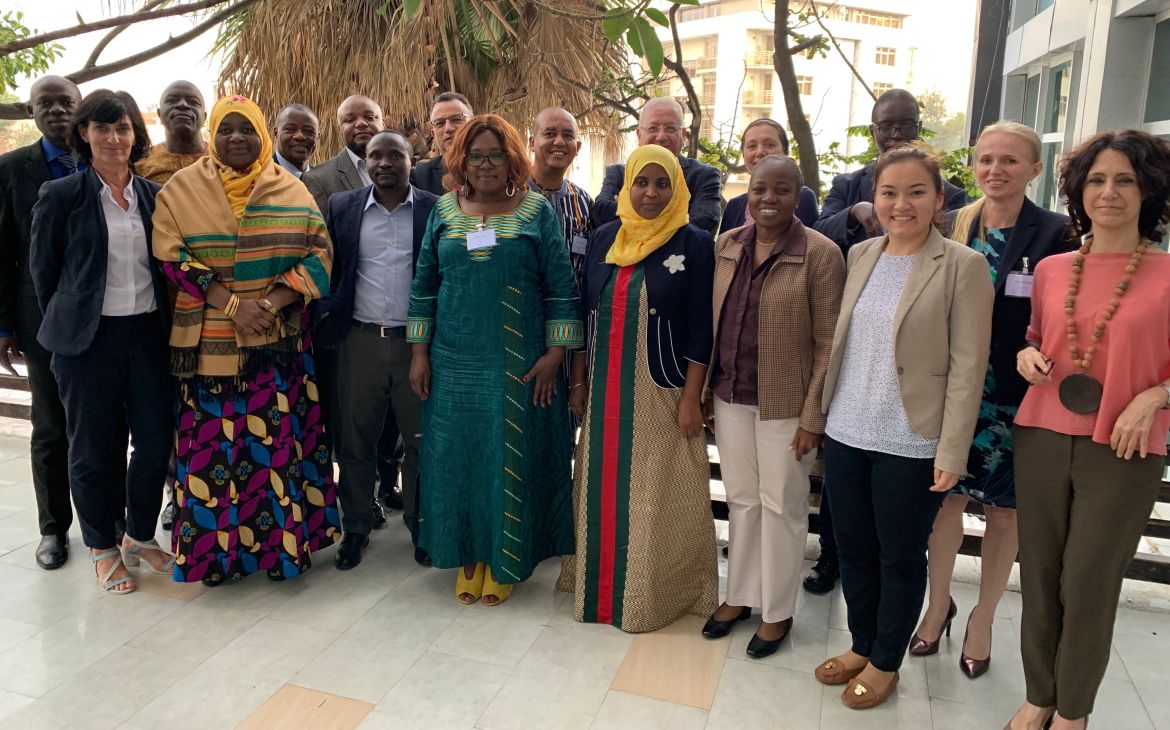March 2020, Geneva, Switzerland - Policy coherence and integrated strategic planning are key enablers for ensuring the achievement of the Sustainable Development Goals (SDGs). They are accomplishable through systemic approaches to visioning and actioning. Strategic Implementation of the 2030 Agenda Unit (SI Agenda 2030) of UNITAR has partnered with the United Nations Department of Economic and Social Affairs (UNDESA) – Division for Public Institutions and Digital Government (DPIDG) and Division for Sustainable Development Goals (DSDG), Regional Commissions such as Economic Commission for Latin America and the Caribbean (ECLAC) and Economic and Social Commission for Asia-Pacific (ESCAP), UNDP and other partners to bring together and bolster expertise of these entities to develop training and training toolkits for coherent and integrated planning.
The rationale for this work is to enable governments to move away from a silo-based development to integrated planning with a system-based analysis guiding the process. The underlying methodology of the training evolves around the interconnected nature of the SDGs and makes use of the approaches developed by various partners such as UNDESA, ECLAC, ESCAP, UNDP or UNITAR. This unique collaboration has helped synergize efforts that each agency is making in the area of policy coherence and integrated policies for the SDGs, providing government officials with a consolidated training offer.
The training toolkits aim to propose a comprehensive approach that tailors to needs of countries at different stages of mainstreaming the SDGs in strategic planning, budgeting and M&E systems. The readiness assessment tool developed by UNDESA DPIDG as part of the joint training activities provides the basis for evaluating the countries’ situations across all these stages of the policy cycle, and adapting the national response. The “policy cycle” toolkit is a foundational training package aimed at government officials and other stakeholders wishing to improve their understanding of the meaning of integrated policy-making and the “leave no one behind” principle and effective ways to leverage SDGs across national strategies and processes. The new, advanced toolkit on “integrated policies and policy coherence” has drawn on the work initiated by UNDESA DSDG leverages a meaningful stakeholder engagement as the starting point to enable a SDG systemic analysis of the current situation, and introduces a qualitative methodology to analyze various policy options and build coherent scenarios of possible futures. This methodology helps lay basis for the formulation of coherent and integrated national policies. The contributions of various partners have helped to strengthen the methodology and training itself with their unique expertise in their respective areas. The work is currently ongoing in collaboration with ESCAP and UNDP to develop a dedicated training module on budgeting and financing for the SDGs.
The advanced training toolkit has been tested in two regions in 2019 through 2 regional workshops in Addis Ababa for 8 African Least Development countries (LDCs) and 2 Small Island Developing States in June 2019 and 1 regional workshop for 13 Caribbean SIDS in Trinidad and Tobago in November 2019. The participating countries included Liberia, Zambia, Tanzania, Ethiopia, Egypt, Senegal, Cameroon, Guinea-Bissau, Cabo Verde, and Togo in the African region, as well as 10 Caribbean Development and Cooperation Committee (CDCC) Members - Antigua and Barbuda, Barbados, Belize, Grenada, Dominica, Jamaica, St. Lucia, St. Vincent and the Grenadines, Suriname, Trinidad and Tobago - and 3 CCDCC Associate Members - Aruba, British Virgin Islands, St. Maarten. Designed with the essential contribution of UNDP Regional Bureau for Africa and ECLAC respectively, these training workshops combined theory, practical exercises, case studies from participating countries, and elements of action planning allowing participants to analyze the applicability of the approaches to policy coherence and integrated planning to their national context. Each pilot helped further refine and fine-tune the methodology and training materials.
The “policy cycle” toolkit was rolled out in full November 2018 in collaboration with the Togolese Public Administration School in the context of a national workshop for high-ranking government officials from across all line ministries. Its elements were also used in regional learning conferences and symposia in Africa in 2016, 2017, in Latin America in 2017, and in Asia in 2019.
In total, 440 participants partook in these face-to-face trainings, 91% of participants of the workshops found the training useful and a number of countries expressed interest in having a follow-up national workshops in their respective countries. All the training materials have been made available as free online toolkits to enable government officials, UN Country Teams (UNCT), academia and all other national experts to conduct national workshops and apply methods of the integrated planning in their national context. Information about the toolkits and related registration is available at the webpage of SI Agenda 2030: www.unitar.org/a2030tools The toolkits with developed with the funding support of Switzerland, Sweden, and Agence Française de Développement.
This partnership follows up on another successful collaboration between UNITAR and UNDESA DSDG that supported UN Member States in their efforts to strengthen stakeholder engagement as part of the preparation of the Voluntary National Reviews (VNRs) and, more broadly, the mainstreaming of the SDGs and national reporting, through facilitated e-learning offer between 2016 and 2019. More information about the impact of this partnership can be found in impact stories here.


